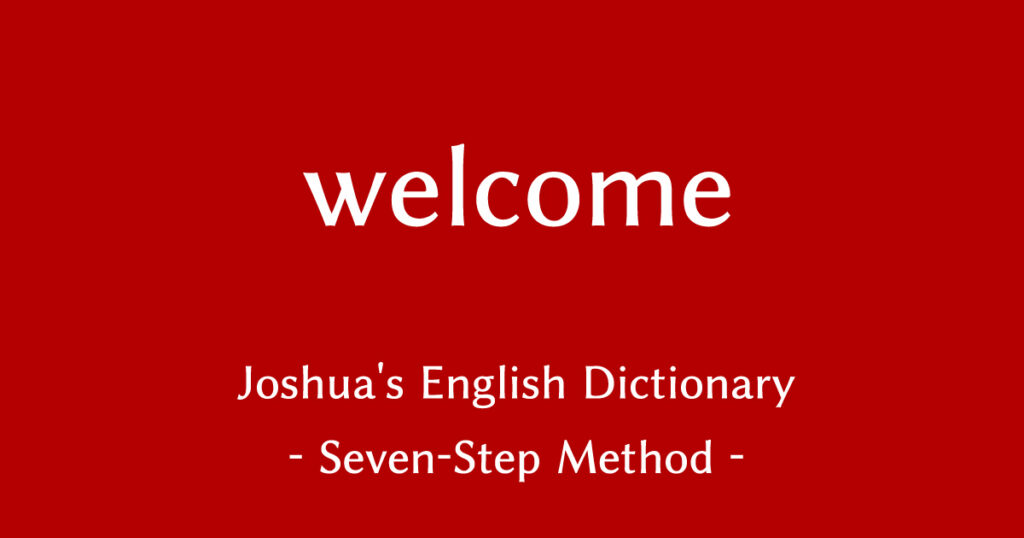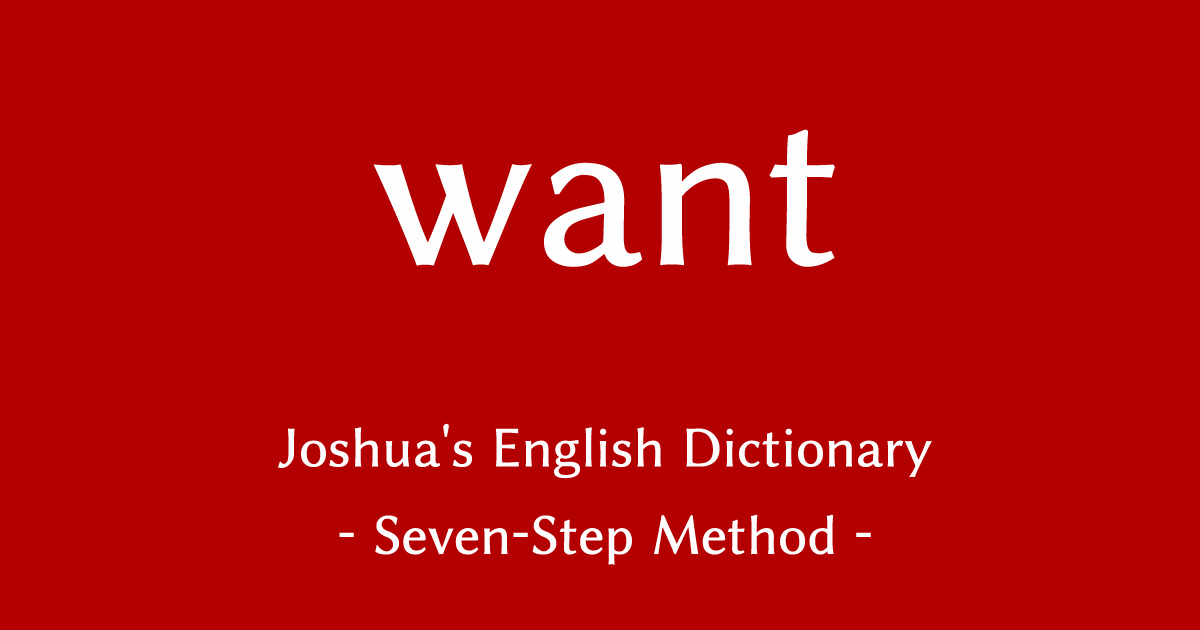
You can learn the English word “welcome” by watching videos, so you are able to understand English definition, meaning, sounds and acquire natural rhythms. Joshua’s Seven-Step Method is an effective learning method for listening, speaking, reading and writing English.
Learning video for “welcome” | Joshua’s English Dictionary
Welcome – Definition & Meaning summary
- Received with gladness; admitted willingly to the house, entertainment, or company.
- Producing gladness; grateful.
- Free to have or enjoy without pay.
Joshua’s Seven-Step Method
Let’s learn the English vocabulary “welcome” by using our Seven-Step Method for effective learning.
Step 1: How to pronounce “welcome” in English
Can you pronounce this word correctly?
The answer is this.
- American : /ˈwelkəm/
- British : /ˈwelkəm/
Step 2: The Word Origin
This word, “welcome” is derived from Anglo-Saxon “wilcuma”.
It consists of “wil- + Cuma.”
Prefix “wil-” means “Strong wish, desire, purpose.”
“cuma” means “one who comes in, guest.”
So, from the Word Origin, “One who comes so as to please another’s will” is the essential meaning of welcome.
Step 3: Definition
The modern usages of this word are:
First meaning, received with gladness; admitted willingly to the house, entertainment, or company.
As, to welcome a visitor; to welcome a new idea.
For example – He welcomed them to come inside and meet his family.
Second meaning, producing gladness; grateful.
As, a welcome present; welcome news; welcome party.
For example – We plan to throw a welcome party when our colleague arrives from London.
Third Meaning, free to have or enjoy without pay.
For example– You are welcome to use my library anytime.
Step 4: Derived words or Related words
- unwelcome, welcome news
Step 5: Word forming elements and application examples
Prefix “wil-” means “will”.
willful, William, willing, willpower, willy-nilly
Old English “cuma” evolved into “come”.
- comeback, come-down, come-outer, comer, cometh, comeuppance, coming
- income, incoming, newcomer, oncoming, outcome, overcome, upcoming
Step 6: Collocation
A collocation is the natural connection of words.
Used as a VERB.
+NOUN
break
The office workers always welcomed their extra afternoon break on Fridays.
+ADV
back
Welcome back. it’s nice to see you again.
home
Welcome home.
please
Please welcome our next speaker Mr. Nathan Smith.
Step 7: Commonly used Word Pairings and phrases
welcome to
Welcome to Tokyo. How was your flight?
welcome you
I’d like to welcome you to our company.
we welcome
We welcome any suggestions that you may have to improve our production process.
good evening and welcome
Good evening and welcome ladies and gentlemen.
I want to welcome
I want to welcome our special guest Mr. Christopher Smith.
would like to welcome
We would like to welcome everyone to join us for a cocktail reception in the lobby.
Note: “cocktail” means “a beverage usually made from a mixture of strong alcoholic drink and fruit juice.”
join me in welcoming
Please join me in welcoming Mr. Craney who came all the way from Toronto.
Note: “all the way” use to emphasize long distance.
good morning and welcome
Good morning and welcome everyone.
you are not welcome
I’m afraid you are not welcome here.
Note: “I’m afraid” use to “polite expression when yon refusing someone.”
great pleasure to welcome
It gives me a great pleasure to welcome Michael Jackson.
welcome to the program
Michael, Jeff, Sarah, welcome to the program. You are great additions to the team.
welcome to the world
Welcome to the world of reality TV.
welcome to the discussion
You are welcome to join our discussion by sending your comments to our website.
Conclusion
Great job!
You now have mastered the word “welcome.”
Remember you are always welcome to share your thoughts about our program in the comment section of the video.

